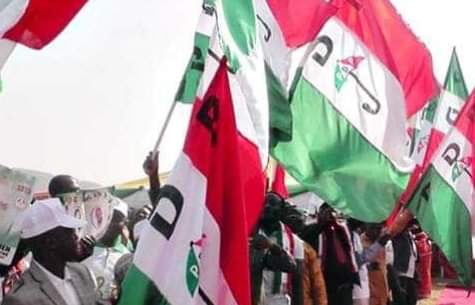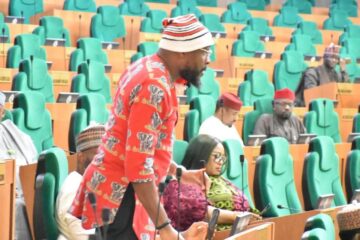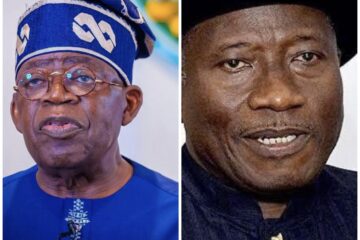With a few hours to the governorship primary of the Peoples Democratic Party (PDP) in Abia State, an internal crisis and a controversy over the selection of its three-member ad-hoc delegates for each ward is yet to be buried.
The delegates will vote at the primaries to nominate the party’s candidates for the 2023 general election.
The PDP ward congresses were scheduled to hold in the state on April 30 until they were cancelled due to a court order. Although they were re-scheduled for May 4 after the order was vacated, they failed to hold because of a public holiday on the day.
However, while some party members waited for a new date for the congresses, Governor Okezie Ikpeazu and others allegedly wrote a list of ad-hoc delegates across the 184 wards of the state and sent it to the National Working Committee (NWC) of the party.
The governor is reportedly putting pressure on the NWC to use the list for the party’s primaries on Wednesday, May 25.
Mr Ikpeazu and others said ward congresses were held on May 6, where the delegates were elected. But seven of the party governorship aspirants have denied that congresses held across wards in the state.
On May 22, the aspirants, led by Enyinnaya Abaribe, the minority leader of the Senate, at a press conference at the party’s secretariat in Abuja, asked the NWC to take immediate action to prevent an “impending implosion” of the party in Abia State.
The incumbent deputy governor of the state, Ude Chukwu, who is also a governorship aspirant, was part of the seven aspirants revolting against the delegate list.
Describing the controversial delegate list as a nullity, the aspirants said the action of those who compiled and submitted it to the party’s national secretariat was against the law.
“Only the National Chairman and National Secretary of a Political Party can communicate with INEC at their National Headquarters in respect of Congresses, Primaries and Conventions. Neither the State Chairman of a Party nor the REC of INEC have (sic) any role in the matter and so the said Congresses of the 6th day of May 2022 are dead on arrival,” Mr Abaribe said in the conference, on behalf of six others.
“It is preposterous that what is being bandied as a list emanated from an imaginary congress conducted via a letter of notice to the Abia State Resident Electoral Commissioner signed by the Abia State Chairman of the PDP, Mr. Allwell Asiforo Okere. The implication being that the functions of NEC and NWC were performed by a State Chairman of the party and NOT the National Chairman and Secretary of PDP,” he added.
The aspirants urged the party’s NWC to avoid “untoward consequences” by using only statutory delegates for the primaries since it was now obvious that that it can no longer give the statutory seven days’ notice to the Independent National Electoral Commission (INEC) to hold a congress in the state to elect the three-member ad-hoc delegates.
Mr Ikpeazu’s claim that the delegates had been elected was also refuted by the party’s state secretary, David Iro, who insisted that “there has never been any delegates’ conference in the PDP anywhere in Abia.”
The State Working Committee of the party, hours later suspended Mr Iroh for one month, claiming his comment was “unguarded” and “brought embarrassment to the party.”
INEC position
INEC too has maintained that Abia State PDP is yet to conduct its ad-hoc delegate election.
“Please, refer to your letter dated May 11, 2022 requesting confirmation if the commission is in receipt of a letter from the PDP national chairman and national secretary that rescheduled the party’s Abia State ward congresses that failed to hold on May 4, 2022.
“This is to confirm that the last notice received from the PDP national headquarters was the one that scheduled the Abia State ward congress May 4, 2022,” INEC said in a letter, adding that it was still expecting a new date after the congress failed to hold on the scheduled date.
The letter, signed by the commission’s Secretary, Rose Oriaran-Anthony, and dated May 13, was written in response to an enquiry by an Abuja-based legal practitioner.
The faction of the party in the state loyal to Mr Ikpeazu, however, has continued to insist that it conducted the three-member delegate elections.
Implication
On Sunday, the party conducted primary elections to nominate candidates for the House of Representatives and state assembly despite the raging controversy over the delegates.
The Sun newspaper reported, on Monday, that the majority of aspirants withdrew at the last minute due to the party’s insistence to conduct the primaries with what the aspirants termed “strange three-man delegates list.”
If the party should continue the exercise and elect other candidates including governorship candidates slated for Wednesday, May 25, in violation of relevant electoral laws, the party may jeopardise its chances of participation in the coming general election, an event that played out in Zamfara State, some years back.
The Zamfara Scenario
Two factions of the All Progressive Congress in Zamfara State, led by Kabiru Marafa and then Governor Abdul’aziz Yari, had engaged in a battle of supremacy over who controlled the soul of the party in the state ahead of the 2019 general elections.
The disagreement denied the party the opportunity to hold (valid) primary elections for sponsorship of candidates within the stipulated time, as required by law.
Although the INEC went ahead to allow their participation in the poll, where the party won all the offices including governorship, the Supreme Court later voided all votes cast for the party and consequently sacked its candidates who were declared winners in the February 23 and March 16 general elections in the state by INEC.
The court ruled that the party had no candidates in the elections, as it failed to conduct primaries in accordance with its own rules and as required by law. It consequently ordered candidates of the political party that came second, which happened to be the PDP, to take over as the duly elected contestants.
The key aspirants, chances and zoning debate
As of Tuesday, about 10 aspirants were jostling to land the party’s ticket for the governorship election in the state. However, there are only three key contenders for the ticket.
They include: the immediate past Vice Chancellor of the Abia State University, Eleazar Ikonne; the Minority Leader of the Nigerian Senate, Mr Abaribe; and the incumbent Deputy Governor of the state, Mr Chukwu.
Immediate past Vice Chancellor of the Abia State University, Eleazar Ikonne
Mr Ikonne, said to be a candidate of the state governor, is more likely to land the ticket, especially given the reported withdrawal of other candidates from the contest and the governor’s firm control of the alleged “fake delegates.” This is in addition to the fact that power of incumbency would play a huge role even without the withdrawal of other aspirants.
But for the power of incumbency and allegation of imposed delegates, Mr Abaribe stands a good chance of landing the ticket.
His alleged support for pro-Biafra groups and their agitations in Nigeria’s South-east appeared to have endeared the senator to many South-easterners, including residents of Abia State.
For Mr Chukwu, observers say the deputy governor is likely to cause an upset given that he may have been in the know of his principal’s strategies and political secrets in winning primaries and elections.
Zoning debate
Like in many states in Nigeria, a lingering issue in the country’s political landscape has been the debate about which zone or region should produce candidates for different political offices.
In Abia State, the issue of zoning has been raging. The party in the state had, a few months ago, announced that it had zoned the governorship position to Abia Central and Abia North Senatorial Districts in the state.
Mr Abaribe was zoned out in the new party arrangement. The senator swiftly condemned the decision, describing it as an attempt to engage in “imposition” of a candidate in the state.
The lawmaker is from Abia South, the senatorial district ignored by the party.
An unwritten zoning agreement, called ‘Abia Charter of Equity,’ was said to have been reached, long ago, to balance power rotation among the three senatorial districts in the state – Abia Central, Abia South and Abia North.
The arrangement began with Orji Kalu in 1999, who is from Abia North, ruling the state for eight years. He handed over to his former chief of staff, Theodore Orji from Abia Central District who also ruled for eight years, before handing over to the current governor, Okezie Ikpeazu, from Abia South District, where Mr Abaribe hails from.
While a group insists that power should return to Abia North, where it started, others argue that the power sharing is between two political blocs – Old Aba Division and Old Bende Division – not senatorial districts.
Two former governors, Merssrs Kalu and Orji, who governed the state for eight years each belong to the Old Bende Division which has nine local government areas.
The supporters of power rotation among the political blocs contend that the Old Aba Division, where Okezie Ikpeazu’s senatorial district belongs, should be given the opportunity to retain power for eight more years in 2023 to make up for the 16 years that power resided with the Old Bende Division.
But Mr Ikpeazu appeared to have heeded the calls by picking Mr Ikonne, a 66-year-old professor of optometry, as his successor, from the Old Aba Division, although not the same senatorial district as the governor.
Mr Ikonne, a former Rector of Abia State Polytechnic, hails from Isiala Ngwa North Local Government Area in Abia Central District.
Mr Ikpeazu is from the same Obingwa Local Government Area and Abia South District as Mr Abaribe.
Although Mr Abaribe belongs to the same Old Aba Division as Mr Ikonne, his local government of origin (Obingwa) is located outside the two senatorial districts where the governorship ticket had earlier been zoned to by the PDP.
Mr Abaribe’s plan B
On Sunday, hours after the withdrawal of Mr Abaribe and others went public, officials of the All Progressive Grand Alliance (APGA), visited the senator in what appears to be negotiation over a possible switch to APGA from PDP in the state.
A source within the senator’s camp told Premium Times, Monday night, that although the APGA officials agreed to give the former Abia State deputy governor “automatic ticket” to run for Senate, Mr Abaribe was yet to make a decision.
“He is monitoring events in the PDP. If nothing positive happens, he could defect to APGA,” the source said of Mr Abaribe.




